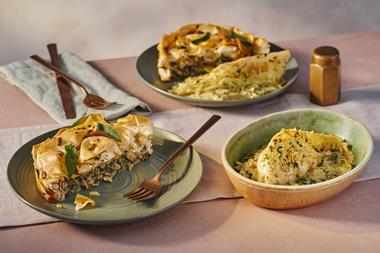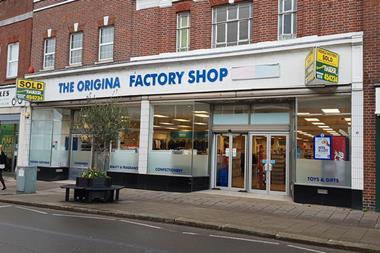Tesco moved into the Irish market three years ago, buying the 75-store Quinnsworth and Crazy Prices chain from Associated British Foods for I£630m, a price some in the trade regarded as high.
Since then the company has invested another I£200m in upgrades and new technology. Two replacement stores have been developed at Maynooth and Newbridge, County Kildare, while two new outlets are being built in Killarney and in Castlebar, County Mayo.
Tesco now employs 10,000 staff, an increase of 2,000 on the Quinnsworth total, while the latest figures from consultants Taylor Nielsen give it a 23.4% share of the I£5bn Irish grocery market, a rise of 1.4% in the past year. Trade sources claim the gain has been at the expense of the other big market player, Dunnes Stores, whose share is put at 22.7%.
The SuperValu/Centra chain ranks third, claiming a 25% share, while Superquinn has 9% of the market.
Reflecting the remarkable growth of the Irish economy, Tesco increased its sales in the market last year by 6% to I£1.12bn. That has brought boom times for Irish suppliers, whose business with the chain has grown by over 20% since the takeover. Managing director Maurice Pratt aims to increase that business to I£1bn by 2002.
But Tesco has also had its Irish troubles. There were threats of a boycott when the chain refused to stock Irish beef in its UK stores, as a gesture of support for beleaguered British farmers during the BSE crisis. It took an unqualified apology from Pratt for the action of UK executives to win back customers.
Equally embarrassing was Tesco's prosecution for overcharging. There was a nominal fine and a mountain of bad publicity. Pratt blamed a technology snag and offered another profuse apology. Customers carried on shopping.
{{COVER FEATURE }}
Close menu
- Home
- Retail & Wholesale
-
Products & Suppliers
- Back to parent navigation item
- Products & Suppliers
-
Product Categories:
- Back to parent navigation item
- Product Categories:
- Alcoholic drinks
- Bakery
- Cereals & breakfast
- Cheese
- Chicken & poultry
- Chocolate
- Confectionery
- Crisps, nuts & snacks
- Dairy
- Fish
- Fresh produce
- Frozen
- Household
- Meat
- Own Label
- Sauces & condiments
- Seasonal
- Soft drinks
- Vaping
- Vegan & plant-based
- World foods
- Suppliers
- People
- Reports & Data
-
Topics A-Z
- Back to parent navigation item
- Topics A-Z
-
Popular topics:
- Back to parent navigation item
- Popular topics:
- Cost of living crisis
- Crime
- Deposit Return Schemes
- Finance
- Government & Regulation
- Health
- Inflation
- Loyalty
- Marketing
- Mergers & Acquisitions
- New Product Development
- Sourcing
- Supply chain
- Sustainability & environment
- Technology
- Ultra Processed Foods
- Vaping
- A-Z all topics
- Content by type:
- Events
- Ask iA (beta)
- Subscribe now
Sign in to comment on this article
Not logged in before? Register for FREE guest access today.
You will be able to:
- Read more stories
- Receive daily newsletters
- Comment on stories
Advert



















No comments yet